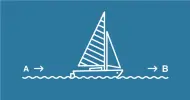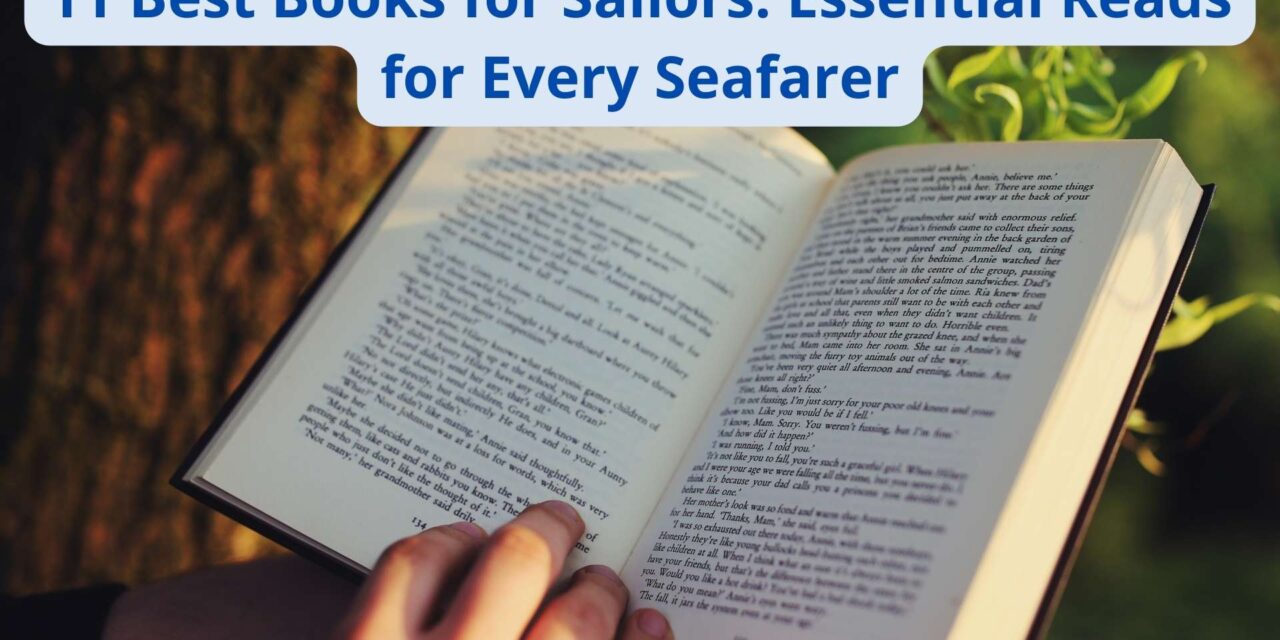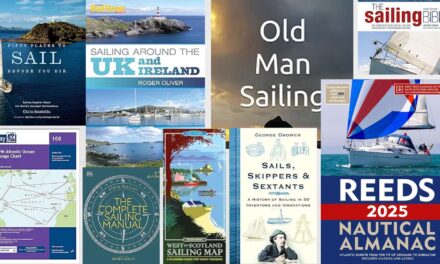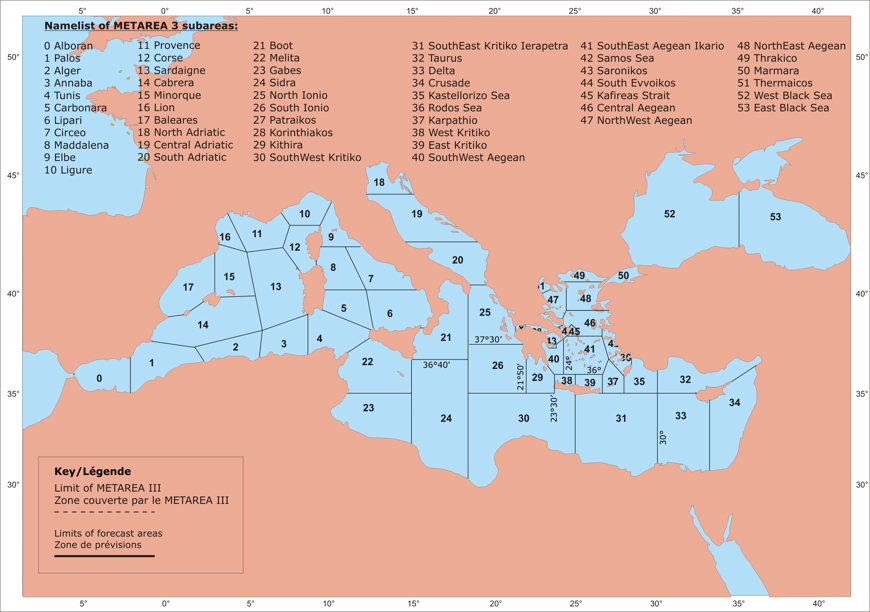When you’re looking to expand your sailing repertoire, the ’11 Best Books for Sailors’ will be indispensable. These selections, ranging from practical guides to engaging adventure tales, promise to enhance your maritime experience. Whether you’re perfecting navigation skills, mastering on-board cooking, or ensuring safety with weather knowledge, each book offers something valuable. Imagine the confidence you’ll gain by understanding nautical terms and improving your boat handling. But which titles are truly must-haves, and why do they stand out? Let’s explore these essential reads and discover how they can transform your time on the water.
Yachting Monthlys Confessions: Yachtsmen Own Up to Their Sailing Sins
If you’re a sailor who enjoys a good laugh while learning from others’ nautical misadventures, then ‘Yachting Monthly’s Confessions: Yachtsmen Own Up to Their Sailing Sins’ is the perfect read for you.
Readers rave about its humor and relatability, with one noting it made their mistakes seem trivial. The book is filled with true stories that could happen to any sailor, accompanied by Mike Peyton’s brilliant cartoons.
It’s a well-received gift, often leading to much chortling among sailing enthusiasts. While some critiques mention its size or relevance to motor boating, the overall consensus is that it’s an instructive and entertaining read.
You’ll find yourself laughing and recognizing your own experiences within its pages.
Best For: Sailors and yachting enthusiasts who enjoy humorous and relatable nautical stories.
Pros: – Filled with true, humorous sailing stories. – Brilliant cartoons by Mike Peyton. – Highly relatable and entertaining for sailors.
Cons: – Not as relevant for motor boating enthusiasts. – Some readers found it smaller than expected. – Might not be as engaging for non-sailors.
The Sailor
The Sailor in ‘Books for Sailors’ offers a nostalgic journey, making it an ideal gift for ex-matelots and Ladybird fans. This book is praised for its superb illustrations and factual accuracy, even if simplified.
Readers have lauded it as a great little book that brings back fond memories, capturing the essence of seafaring life. One reviewer highlighted its excellent quality and nostalgia factor, making it perfect for those who’ve served at sea.
However, not all feedback is glowing; one reader felt the book’s condition wasn’t up to par. Despite this, ‘The Sailor’ remains a beloved choice for its charm and evocative content, ensuring it’s a treasured addition to any sailor’s bookshelf.
Best For: Ex-matelots and Ladybird fans looking for a nostalgic and factually accurate journey into seafaring life.
Pros: – Superb illustrations that enhance the reading experience. – Factually accurate content, even if simplified. – Evokes fond memories, making it a great gift for former sailors.
Cons: – Some readers found the book’s condition not up to expectations. – Simplified content may not appeal to those seeking in-depth information. – Limited to a niche audience of former sailors and Ladybird fans.
Soldier Sailor by David Nicholls
Soldier Sailor by David Nicholls is a must-read for those who want an unflinching look at the raw and often dark realities of early motherhood. This feminist exploration dives into the emotional toll of becoming a first-time mother, portraying the protagonist’s feelings of desperation, joy, sadness, anger, and depression with visceral honesty.
You’ll find the husband depicted as useless, contrasting sharply with ‘the friend,’ who’s shown as a fantastic father. While some readers felt disappointed by the weak ending and the book’s length, many appreciated its realistic portrayal of the protagonist’s struggles.
The social commentary on gender responsibilities and the mother’s fear of failure are palpable. Despite mixed reviews, the book offers an important perspective on the complexities of motherhood.
Best For: Those looking for an unfiltered, feminist exploration of the emotional challenges of early motherhood.
Pros: – Realistic and visceral portrayal of a first-time mother’s emotional journey. – Insightful social commentary on gender responsibilities and parental roles. – Engaging mix of dark, sad, and occasionally funny moments.
Cons: – Some readers found the ending weak and disappointing. – Criticized for not having a clear storyline and being overly long. – Focuses more on the misery of parenthood than its joyous moments.
The Sailors Book of the Weather
For novice sailors keen to master weather basics, ‘The Sailors Book of the Weather’ offers a chatty writing style and clear illustrations to make learning enjoyable and accessible. You’ll find it starts with basic principles and progressively builds your knowledge.
The book’s useful photos for cloud forecasting help you spot conditions that might change at sea. Even if understanding low-pressure systems seems tricky, this book breaks it down clearly. It mightn’t turn you into an expert predictor overnight, but it’s a valuable addition to your bookshelf.
The inclusion of internet resources for weather info enhances its utility. Overall, it’s ideal for anyone wanting to grasp weather fundamentals, regardless of their level of expertise.
Best For: Novice sailors and weather enthusiasts looking to understand the basics of weather with clear explanations and illustrations.
Pros: – Chatty writing style makes the content engaging and accessible. – Useful photos for cloud forecasting to help spot changing conditions at sea. – Includes information on internet sites for additional weather information.
Cons: – May not significantly improve one’s ability to predict weather despite understanding. – Some readers might find the explanation of low-pressure systems challenging. – Not intended to turn readers into expert weather predictors overnight.
The Boat Cookbook: Real Food for Hungry Sailors
Ideal for sailors who love cooking onboard, The Boat Cookbook: Real Food for Hungry Sailors offers clear instructions, vibrant photos, and diverse recipes that transform any small galley into a culinary haven. Readers appreciate its clear writing and interesting recipes, making it essential for any boat galley.
One reader’s brother keeps it on his yacht and loves it, while another finds it perfect for small kitchens. The book provides good ideas for those keeping a small stock of cooking basics in the galley cupboard. You’ll find simple and delicious desserts, main courses, and drinks to try on your next sailing trip.
Despite one reader’s disappointment, most find it eye-opening and a great addition to their onboard collection.
Best For: Sailors who enjoy cooking onboard and need a versatile cookbook that fits well in small galley kitchens.
Pros: – Clear instructions and vibrant photos. – Diverse recipes, including desserts, main courses, and drinks. – Ideal for small kitchens and keeping a basic stock of ingredients.
Cons: – One reader found it more suitable for Martha’s Vineyard than a boat. – May not meet expectations of all readers. – Limited appeal for those not interested in small kitchen cooking.
A Sailor, a Chicken, an Incredible Voyage by Guirec Soudée
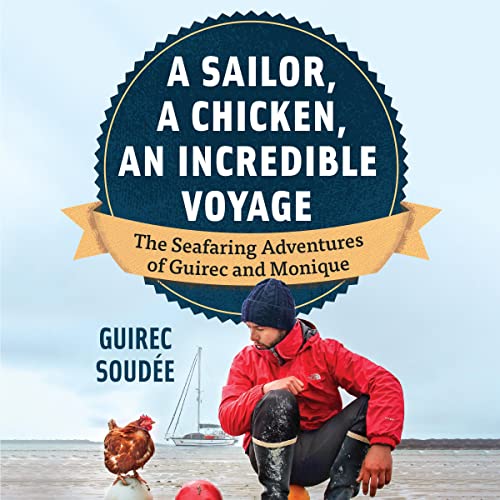
If you’re a sailing enthusiast looking for an inspiring and humorous true adventure, ‘A Sailor, a Chicken, an Incredible Voyage’ by Guirec Soudée is a must-read.
This charming book tells the gripping story of Soudée’s incredible journey with his chicken, Monique. You’ll be captivated by their survival against the elements, including overwintering in Arctic pack ice.
The dry humor and well-planned, albeit sometimes foolhardy, decisions make for an engaging read. Soudée’s relationship with Monique adds depth and warmth to the story.
The book offers insights into high-latitude sailing and the surprising behavior of chickens. Well-written with humility and humor, it’s a delightful escape that will inspire and entertain sailors and adventure lovers alike.
Best For: Sailing enthusiasts and adventure lovers who enjoy humorous and inspiring true stories.
Pros: – Captivating true story of survival and adventure. – Warm and humorous writing style. – Insightful details about high-latitude sailing and chicken behavior.
Cons: – Slightly stilted writing style in parts. – Some decisions may seem foolhardy. – Primarily appeals to those interested in sailing and adventure.
The Sailor who Fell from Grace with the Sea: Yukio Mishima
Immerse yourself in Yukio Mishima’s ‘The Sailor who Fell from Grace with the Sea’ if you’re a sailor yearning for a richly symbolic narrative that explores profound themes and human complexities. This classic novel examines the tensions between men and women, children and adults, fathers and sons, and the dichotomy of land and sea.
You’ll follow Ryuji, a sailor seeking a glorious destiny, Fusako, a young widow, and her son Noboru, who belongs to a nihilistic gang. As Noboru’s gang initially idolizes Ryuji, the story takes a dark turn, revealing the fragility of masculinity. Praised for its evocative storytelling, this gem of Japanese literature, despite some translation issues, remains a must-read for those intrigued by tradition, honor, and integrity.
Best For: Sailors and readers who appreciate richly symbolic narratives exploring complex human themes and the dichotomy of land and sea.
Pros: – Evocative storytelling with rich descriptions. – Deep exploration of themes like tradition, honor, and integrity. – Complex characters with intricate relationships.
Cons: – Some issues with translation quality. – Presence of typos in certain print editions. – Compact size of the book compared to its price.
Normandy: The Sailors Story (A Naval History of D-Day)
For anyone fascinated by the often-overlooked naval operations of D-Day, ‘Normandy: The Sailors Story’ offers a gripping and meticulously detailed account of the seaborne efforts that were crucial to the success of the Normandy landings.
Nick Hewitt’s book sheds light on Operation Neptune and the essential roles of Admiral Ramsay and other key figures. It explores pre-invasion planning, intelligence gathering, and the extensive fleet involved.
You’ll gain insights into the courage and sacrifices of those who fought in the Battle of Seine Bay. Praised for its thoroughness and readability, this book is a must-read for understanding the naval contributions to D-Day, offering new perspectives and detailed accounts often missing from traditional histories.
Best For: Anyone interested in the often-overlooked naval operations of D-Day and seeking a comprehensive, detailed account of Operation Neptune and the Battle of Seine Bay.
Pros: – Thorough and well-researched coverage of naval operations during D-Day. – Engaging and readable narration that brings the story to life. – Offers new insights and perspectives often missing from traditional D-Day histories.
Cons: – Focuses predominantly on naval aspects, which might not appeal to those looking for a broader overview of D-Day. – The detailed accounts might be overwhelming for casual readers. – Limited coverage of the airborne and beach landings compared to other D-Day histories.
Sailor Song: The Shanties and Ballads of the High Seas
‘Sailor Song: The Shanties and Ballads of the High Seas’ is perfect for history buffs and music enthusiasts keen to explore authentic sea shanties with rich backstories and detailed melodies.
You’ll find detailed historical notes and lovely illustrations that bring these maritime songs to life. The book offers a range of shanties with context and melodies, making it a fascinating and informative read.
Each shanty includes melody lines and words for singing, though some may need transposing since all scores are in C. Praised for its depth of research and scientific background, this book has been a hit with friends who run online choirs, adding an interesting and fun addition to their song book libraries.
Best For: History buffs and music enthusiasts keen to explore authentic sea shanties with rich backstories and detailed melodies.
Pros: – Detailed historical notes and lovely illustrations enhance the experience. – Comprehensive collection with authoritative research on sea shanties. – Fun and useful addition for choir libraries, appreciated by those running online choirs.
Cons: – All scores are in C, which may require transposing for singing. – Some shanties may be unfamiliar to readers. – Specific musical knowledge might be needed to fully utilize the scores provided.
Sailor Moon 1 (Naoko Takeuchi Collection)
Fans of both classic and modern manga will find Sailor Moon 1 (Naoko Takeuchi Collection) a compelling addition to their collection, thanks to its clear illustrations and engaging storylines. This brilliant manga series draws readers in and is popular among fans of all ages. It’s a great gift for Christmas, with quick delivery and good quality.
However, be aware of some critiques: confusion with the reading direction and disappointment with the printing from back to front. Some readers received copies with damaged spines. If you’re learning Japanese, this edition offers an exciting challenge but might be difficult due to the Japanese cover and lack of English text.
Despite these issues, the nostalgia and love for Sailor Moon persist.
Best For: Fans of all ages, especially those who appreciate classic and modern manga with clear illustrations and engaging storylines.
Pros: – Clear illustrations and entertaining storylines. – Quick delivery and good quality. – Great gift for Christmas.
Cons: – Confusion with the reading direction. – Some copies received with damaged spines. – Difficulty for those learning Japanese due to lack of English text.
The Sailors Word-Book
The Sailors Word-Book is an extensive collection of over 14,000 nautical terms, perfect for those passionate about maritime history or seeking a comprehensive reference to British naval terminology from the 19th century.
Written by a retired admiral, this book captures the essence of British seafaring language used both at sea and ashore. It has received positive feedback for its detailed coverage and usefulness in research. One reader, a former sailor with 35 years at sea, found it fascinating.
Despite some complaints about printing errors and its old-fashioned nature, many appreciate its sturdy construction and substantial content. Whether you’re learning new words daily or delving deep into maritime history, this book is a valuable addition to any collection.
Best For: Anyone passionate about maritime history or those seeking a thorough reference to British naval terminology from the 19th century.
Pros: – Comprehensive collection of over 14,000 nautical terms. – Detailed and accurate definitions, making it useful for research. – Sturdy construction ensures durability.
Cons: – Contains many printing errors. – Old-fashioned language may not be useful for modern nautical learning. – Takes up considerable shelf space (2.25 inches).
Factors to Consider When Choosing Books for Sailors
When choosing books for sailors, you should consider practical sailing guides for hands-on advice and nautical history narratives for context and inspiration.
Adventure and exploration stories can boost morale, while weather understanding essentials are vital for safety.
Don’t forget maritime cooking recipes to keep meals interesting and nutritious during long voyages.
Practical Sailing Guides
Choosing the appropriate practical sailing guide can greatly enhance your skills and confidence on the water. These books offer essential information on navigation, safety, weather interpretation, and boat handling techniques. A well-chosen guide will help you understand sail trim, anchoring, docking, and emergency procedures, ensuring you’re prepared for any situation.
Look for guides that include tips and tricks from experienced sailors. Their insights can be invaluable when maneuvering through challenging conditions. Practical sailing guides often cover sailboat maintenance and equipment selection, helping you keep your vessel in top shape and choose the right gear for your adventures. Trip planning is another crucial topic, ensuring you can chart your course efficiently and safely.
Whether you’re a novice or a seasoned sailor, practical sailing guides are indispensable. They provide a thorough approach to sailing, making complex topics more understandable. As you select your guide, prioritize ones that offer clear, concise explanations and step-by-step instructions. This way, you can easily apply what you learn on your next voyage.
Investing in a quality practical sailing guide will certainly contribute to a safer, more enjoyable sailing experience.
Nautical History Narratives
Delving into nautical history narratives offers sailors a deeper understanding of maritime heritage and the evolution of seafaring. These books provide rich insights into significant events, figures, and developments that have shaped the world’s oceans and the lives of those who traverse them.
When choosing a book, consider its focus—whether it’s naval battles, exploration voyages, or technological advancements. Each book will offer a unique perspective, enriching your knowledge about the maritime world.
You’ll find narratives covering a wide range of topics, from piracy and naval warfare to merchant shipping and maritime trade. These stories don’t just recount historical facts; they bring to life the traditions and cultures that have flourished around the seas. By exploring these tales, you gain a deeper appreciation for the interconnectedness of global history through the lens of seafaring activities.
Look for books that balance engaging storytelling with historical accuracy. The best nautical history narratives captivate you while providing valuable information, making them essential reads for every sailor.
Understanding the past helps you appreciate the present and navigate the future, both literally and metaphorically, as you sail the vast waters of the world.
Adventure and Exploration
Adventure and exploration books for sailors often captivate readers with thrilling tales of daring voyages and uncharted territories. These stories transport you into a world of survival challenges, exotic destinations, and the exhilarating spirit of discovery.
Whether you’re reading about real-life sailing expeditions or fictional adventures set on the high seas, these books offer a unique window into the seafaring life.
When choosing an adventure-themed book, look for gripping narratives that detail shipwrecks, treasure hunts, and encounters with marine life. These elements not only make for an exciting read but also provide valuable lessons in resilience and resourcefulness.
Historical accounts of maritime discoveries and journeys to remote islands can offer fascinating insights into the challenges and triumphs faced by early explorers.
Exploration-focused books inspire a sense of wanderlust and curiosity about the world’s oceans. They can ignite your passion for sailing and bring to life the freedom and unpredictability of the open sea.
Whether you’re an experienced sailor or just starting, these books can motivate you to set sail on your own adventures, armed with newfound knowledge and a spirit of exploration.
Weather Understanding Essentials
A sailor’s ability to understand weather patterns is vital for making informed and safe navigational decisions. When choosing books on weather understanding, focus on those that cover essential topics like low-pressure systems. These systems can dramatically affect conditions at sea, and knowing how to predict them can be a lifesaver.
Books with clear illustrations make complex meteorological concepts easier to grasp. Look for titles that include diagrams and charts which visually explain phenomena like cloud formations, wind patterns, and pressure changes. A chatty writing style can also make learning more engaging, keeping you interested and making the information stick.
It’s important to build your knowledge progressively. Start with books that lay the groundwork on basic weather principles and gradually move to more advanced texts. This step-by-step approach will enhance your forecasting skills over time.
Additionally, books that teach you to recognize signs of impending weather changes are invaluable. Being able to read the sky and sea conditions accurately allows for proactive decision-making. Look for books that emphasize practical applications and real-world scenarios to help you develop these critical skills.
Maritime Cooking Recipes
When choosing maritime cooking books, prioritize those that offer practical recipes suited for the unique challenges of a boat galley. Look for books that focus on cooking in small spaces and with limited resources. These books often include tips for using canned or dried ingredients and adapting recipes to your boat’s kitchen setup.
You’ll want recipes that account for limited refrigeration and stove fuel. Books that teach you how to make the most out of non-perishable items are invaluable. Seek out those that offer quick and easy meal ideas. After all, when you’re busy managing the boat, you don’t want to spend hours cooking.
Consider books that cater to specific dietary needs or restrictions. Whether it’s vegetarian, gluten-free, or low-sodium, having recipes that meet your dietary requirements can make a big difference when you’re at sea.
In addition, practical tips on meal planning and preparation can be a huge help. Some books even offer advice on how to store ingredients efficiently and manage waste, which is essential on long voyages. These aspects collectively make a maritime cooking book a must-have for any seafarer.
Sea Shanties Collections
Selecting sea shanties collections involves taking into account historical context, musical scores, and engaging illustrations to guarantee a rich, immersive experience. When you choose a collection, look for books that dive deep into the history behind each shanty. This historical context will help you appreciate the maritime culture and traditions that birthed these songs.
You’ll also want collections that include melody lines and lyrics. This will let you sing along and truly immerse yourself in the music. Some books even offer different scores and melodies for well-known shanties, giving you a fresh take on familiar tunes. This variety can keep things interesting and expand your musical repertoire.
Illustrations can add a lot to your experience. Vivid, engaging images bring the stories and songs to life, making them more memorable and enjoyable. These visual elements can transport you right onto the deck of an old sailing ship, surrounded by fellow sailors singing in harmony.
Fictional Maritime Stories
Consider several key factors when selecting fictional maritime stories to guarantee an engaging and authentic reading experience. First, look for stories that blend adventure, drama, and historical elements. These narratives often captivate readers by weaving together thrilling voyages, intense conflicts, and rich historical contexts.
Next, explore themes of courage, survival, and camaraderie. These themes resonate deeply with sailors and maritime enthusiasts, as they mirror the real-life challenges and bonds formed on the open sea. Books that highlight these aspects can provide not just entertainment but also inspiration and insight into the seafaring life.
Additionally, consider the era and setting of the story. Fictional maritime tales can transport you to different times and places, from the Golden Age of Piracy to modern naval adventures. Choosing stories set in various historical periods can offer a diverse and enriching reading experience.
Language and Terminology
While fictional maritime stories can captivate your imagination, understanding the specific language and terminology of sailing is equally important for enhancing your seamanship skills.
Knowing nautical terms is vital for effective communication at sea. Books that provide thorough definitions of nautical terms can help you expand your vocabulary and knowledge, making you a more proficient sailor.
Learning the specific language of sailing isn’t just about sounding knowledgeable; it’s about ensuring safety and efficiency on board. Familiarity with nautical terminology allows you to understand instructions, communicate clearly with your crew, and navigate effectively.
For instance, when someone shouts ‘hard-a-starboard,’ you need to know exactly what that means to respond promptly and correctly.
Additionally, books focusing on nautical language can aid you in interpreting charts, manuals, and other essential maritime documents accurately. Whether you’re plotting a course on a navigational chart or reading through a technical manual, a solid grasp of sailing terms will make these tasks easier and more precise.
When choosing books for your sailing library, prioritize those that cover nautical language and terminology thoroughly. This knowledge will enhance your overall seamanship skills, ensuring you’re well-prepared for any situation at sea.
